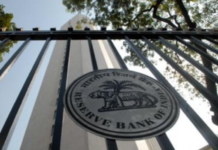New Delhi–The government should take steps to curb black market transactions in gold which have an adverse effect on the economy, according to Y.V. Reddy, a former Governor of the Reserve Bank of India.
“Some of the demand for gold today stems from black market transactions, which have a nefarious influence on the economic systems and social fabric and deserve immediate and serious attention,” Reddy said in an article titled ‘The Voice of Authority’ written in Gold Investor, a publication of the World Gold Council.
He said a number of measures needed to be taken to tackle black market transactions, adding that in the long term, if the financial sector expands and develops, the economy grows and society evolves, the demand for gold arising from cultural factors, property rights and general preferences should be resolved.
Pointing out that gold was an integral part of the Indian economy, Reddy said the country needed to ensure that markets develop in an orderly fashion and that consumers were adequately protected,
“It is also worth noting that gold has the characteristics of a currency, competing with the official currency as a form of savings or a store of value. It is a commodity by definition — but its links with the financial sector provoke central bank concerns,” he added.
He said this duality can be regulated, however, and current government initiatives seem to be moving in the right direction, marking a radical change in public policy.
Referring to the three key initiatives by the government — the Gold Monetisation Scheme, the Sovereign Bond Scheme and the Indian Gold Coin Scheme, Reddy said the first one encourages consumers to generate more value from their gold, but has faced some practical and implementational challenges.
“The government may have to go back to the drawing board to make it work better and attract greater depositor and bank interest. The Sovereign Gold Bond is issued by the government, its efficacy is untested and, to my mind, the benefits to both government and bond buyers are not obvious,” he added.
Reddy said that across the board, government policy is at an embryonic stage. “Importantly, however, recent developments demonstrate a positive attitude towards gold — a radical departure from the past,” he observed.
“In effect, current public policy recognises that the Indian affinity for gold stems from a range of factors. Some of the demand for gold today stems from black market transactions, which have a nefarious influence on the economic system and social fabric and deserve immediate and serious attention,” he added.
He said that as someone with a strong belief in gold’s economic contribution, he was optimistic about its future, not just in India but worldwide. “There have been interesting developments across the globe that signal a heightened significance for gold in the global economy, particularly as a store of value,” Reddy said.
“We should expect a new era for gold, beyond its emerging significance after the crisis. In brief, global uncertainties — in particular, the monetary ‘non-system’, and the out-dated global financial architecture (IMF and the World Bank) — coupled with policies that are less than confidence-inspiring may bring about a new era that gives gold fresh lustre in the years ahead,” he said. (IANS)






